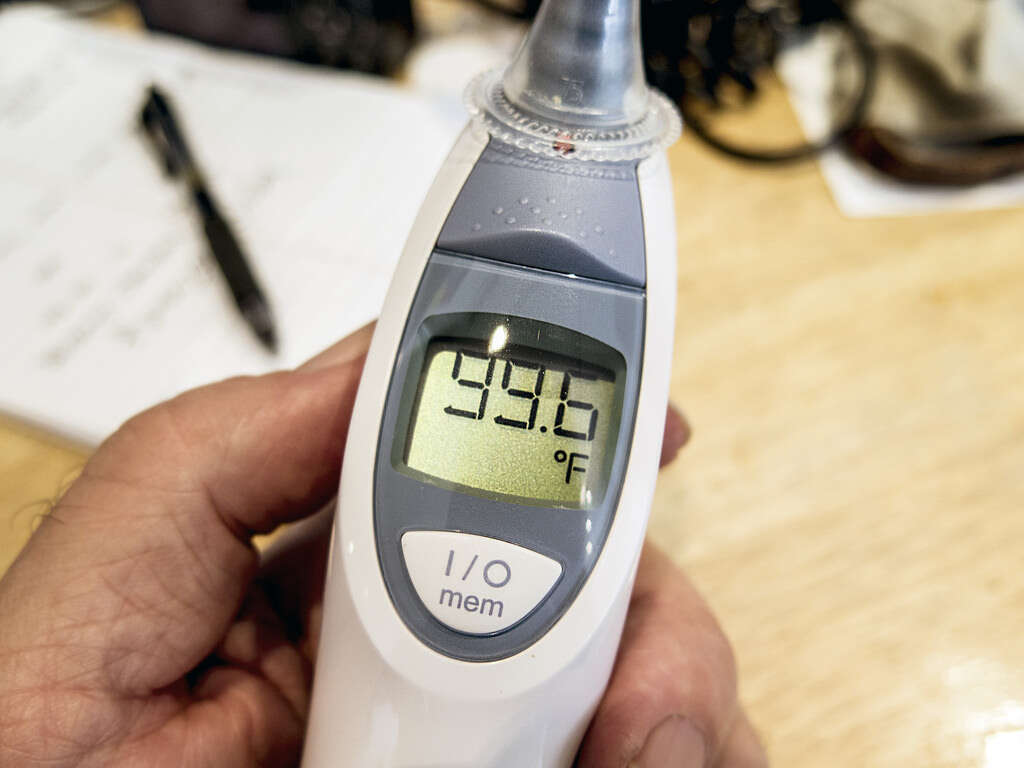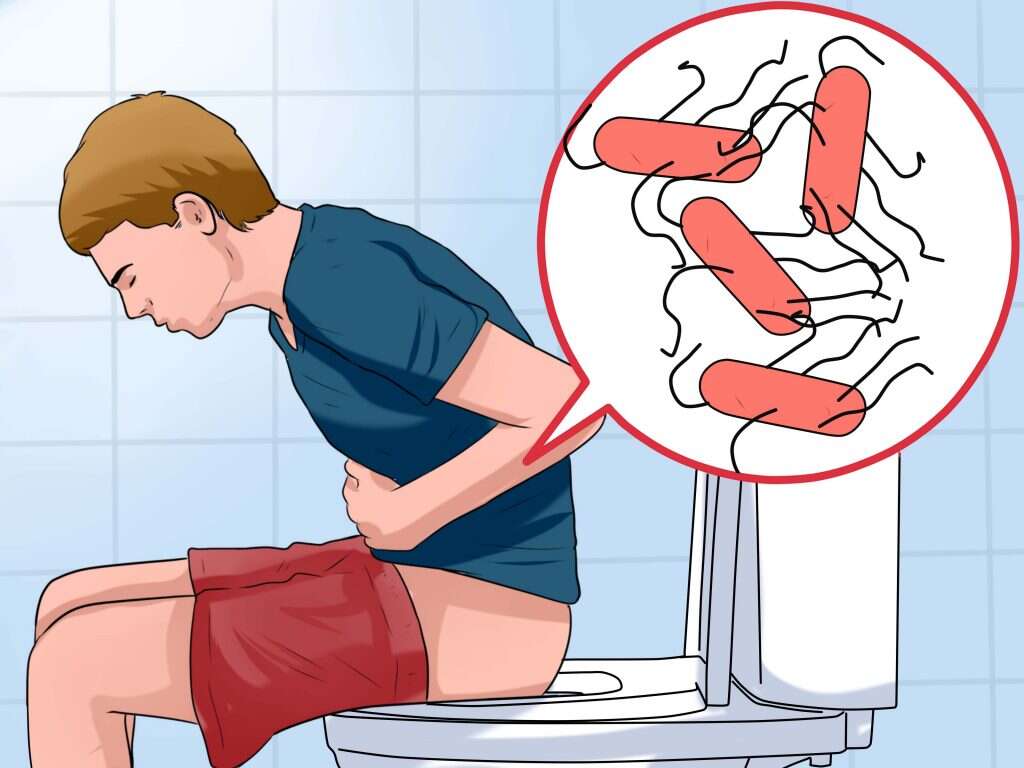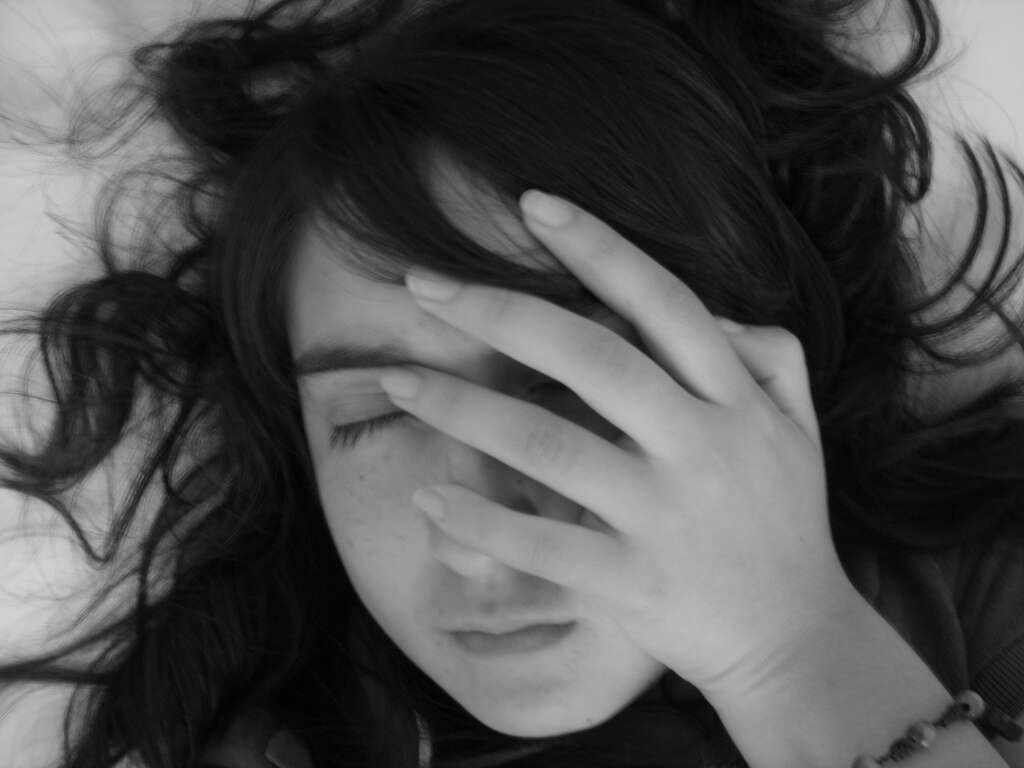10 Listeria Symptoms
Most of us are reasonably well versed in the need for hygiene, especially around food. Harmful pathogens can find their way into our food and the consequences can range from being uncomfortable, to being life-threatening. For the most part though the food that we eat is safe, as any potentially harmful pathogens have been destroyed before the food reaches us.
Sometimes though bacteria might still be around, and one to watch out for is listeria. While listeria is not usually a serious risk to most of us, it can be potentially fatal to some. Very young children are at risk as well as people with weakened immune systems, while pregnant women also need to be particularly careful. Here are some of the most commonly encountered symptoms of a listeria infection.

Symptom #1: Fever
When a potentially harmful pathogen is detected in the body, our bodies have various methods of dealing with them. Listeria is no different and one of our body’s defense mechanisms is to raise the body temperature to make it as inhospitable as possible for the pathogen. This defense mechanism is known as a fever.
A fever, although unpleasant, is actually helpful to us as it helps to deal with infections. The vast majority of the time a fever will pass harmlessly once the infection is dealt with. In rare cases, a fever can run dangerously high so keep an eye on the temperature and seek emergency medical help if the fever does become too high.

Symptom #2: Stiff Neck
A stiff neck is a symptom that is closely associated with meningitis. Listeriosis can cause meningitis in newborns and in immunocompromised patients, especially the elderly, cancer patients, and renal transplant patients as well.
It is important to know that a stiff neck can be caused by many conditions and it is not strictly related to meningitis alone, therefore, it is important to seek medical attention for proper diagnosis.

Symptom #3: Diarrhea
It is unpleasant, but diarrhea is often another defense mechanism that helps to protect us against infection. When too much of a pathogen enters into the stomach and takes hold, one way to deal with it is to try and flush it from the body. Any exit will do so diarrhea is also fairly common.
Diarrhea can be caused by a wide number of things, most of which are quite harmless. Diarrhea will usually pass in a few days and the patient will make a full recovery. If associated with other symptoms though, then an infection such as listeria may be present and medical attention should be sought.

Symptom #4: Vomiting
Another common method the body uses to expel unwanted pathogens is through vomiting. Vomiting can be caused by many things and is often food related. It might simply be that you have had too much to eat or that something has disagreed with you. It could also be a sign of something more serious such as a listeria infection.
Vomiting is not a particularly common symptom among people with listeria, and if the symptom is present it is an indicator of a particularly bad infection. If you are vomiting regularly without explanation then you really should seek medical advice to find the cause.

Symptom #5: Muscle Pain
Muscle pain is often associated with a fever and can be quite uncomfortable. With a listeria infection, muscle pain tends to affect the larger muscles of the body.
While muscle pain can be caused by fever from a cold or flu, it could also signify something more serious. If you do experience such pain and you suspect it is not the flu or a cold, try to see a medical professional as soon as you can.

Symptom #6: Headache
Another common symptom of listeria is a headache, with most sufferers complaining of experiencing it. The severity can range from mild to quite severe. People with a headache will often turn to pain-killers to help relieve the pain, but this is not always effective.
Because the symptoms of listeria are similar to that of a cold or flu, the real cause may not be identified to begin with. If you do think that you have a cold or flu but you also have symptoms such as diarrhea then you should consider speaking to a doctor. Even if it does turn out to be a cold then there is still no harm in being cautious.

Symptom #7: Arthralgia
Listeriosis is a well-known cause of sepsis in newborns and immunocompromised adults. As the disease progresses, the bacteria reach the bloodstream and create havoc inside the vasculature and other organs.
One of the many symptoms associated with sepsis is the appearance of generalized joint pain. This is a non-specific symptom that is associated with many conditions, but if you suspect that it can be due to Listeriosis, it is important to seek medical attention as soon as possible.

Symptom #8: Irritability
Irritability is a very important finding in newborns, as it can be one of the first symptoms to appear during an infection.
Given the fact that newborns cannot express how they feel, the only way to signal that something is wrong is by being irritable. Excessive crying, unusual behavior, restlessness are all signs associated with irritability and could be a sign of sepsis and/or meningitis due to Listeriosis.

Symptom #9: Convulsions
Convulsions are perhaps one of the more dramatic symptoms and can cause a real panic if they occur. Convulsions are a good indicator that something is very wrong, and that medical assistance should be sought. They are reported in around one-quarter of all listeria cases that show CNS (central nervous system) involvement and are indicative of a particularly serious infection.
Convulsions can be caused by a wide range of things, but you should not waste any time trying to figure out what. If somebody is suffering from convulsions unexpectedly, you should get them to a hospital as soon as possible. Even if it does turn out to be something not serious, it is best to leave the diagnosis to the professionals.

Symptom #10: Loss of Balance
Some of the symptoms of listeria are caused when the infection affects the nervous system. One noticeable symptom of this is that the person struggles to maintain their balance. If the nervous system has been affected then the condition is quite serious, so a loss of balance is an indicator that you should seek medical assistance.
While listeria is not the only cause of loss of balance, other causes can also be quite dangerous. They can range from an ear infection to something being quite wrong with the brain. As well as potentially being a symptom of something serious, a loss of balance can also lead to injury from falls. It is advisable to see a doctor as soon as possible.












